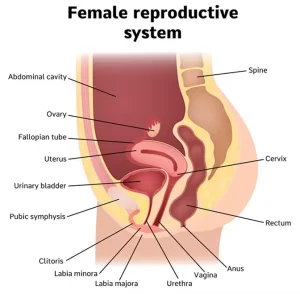Elongation of the labia minora, also known as labia minora stretching or labia minora elongation, is a cultural practice that is predominantly found in some African, South American, and Asian societies. It is often performed as a rite of passage or initiation into womanhood. In Uganda, many cultures practice and encourage labia minora elongation for various reasons.
In most cultures in Uganda, elongated labia minora are considered a symbol of beauty, femininity, and sexual maturity. Women may undergo labia stretching to conform to local ideals of attractiveness and to enhance their sexual desirability within their communities.
According to Dorothy Nabimanya, a resident of Mulawa in Kiira division, labia elongation is viewed as a traditional rite of passage for girls transitioning into womanhood. It is often viewed as a cultural marker of maturity, fertility, and readiness for marriage and motherhood.
“While growing up, my paternal aunt introduced me and my sisters to this. She told us that it would help us in the future when we are giving birth, stressing that the elongated labia minora helps in the opening of the vagina during labour there by avoiding a ceasarian section,” Nabimanya said.


While speaking to Isaac Lubega from Masaka district, he said that labia minora elongation enhances sexual pleasure for both partners. It is thought to increase friction and stimulation during sexual intercourse, leading to improved sexual satisfaction.
“The sexual pleasure with a woman who has pulled her labia minora is awesome. The labia covers you, and you feel warmth and pleasure. The labia minora also helps women reach orgasm faster,” Lubega intimated.
It is believed that women with elongated labia minora are considered more desirable for marriage and are believed to be better able to satisfy their future husbands sexually. As a result, labia elongation is seen as a means of improving a woman’s marriage prospects and social status.
Labia elongation is rooted in longstanding traditional practices that are deeply intertwined with cultural beliefs and rituals, representing a way of honouring ancestral traditions and respecting cultural heritage, for example, the Bakiga of the Kigezi region, the Banyarwanda from Rwanda, the Baganda from Central Uganda, and others.
While speaking to our reporter, Dr. Daisy Ahimbisibwe from Reproductive Health Uganda said that the elongation of the labia minora has no effect on one’s physical health.
“It may not have an effect, but it depends on what you are going to use it for. Different cultures do different things, but it doesn’t have any effect,” Ahimbisibwe said.
It is important to note that the cultural significance and practices associated with labia elongation are complex and can vary widely from one community to another. The practice has sparked debates about bodily autonomy, consent, and the impact of cultural expectations on women’s bodies. In recent years, there has been increasing advocacy for the rights of women to make informed choices about their bodies and to challenge harmful cultural practices that may negatively impact their physical and psychological well-being.
